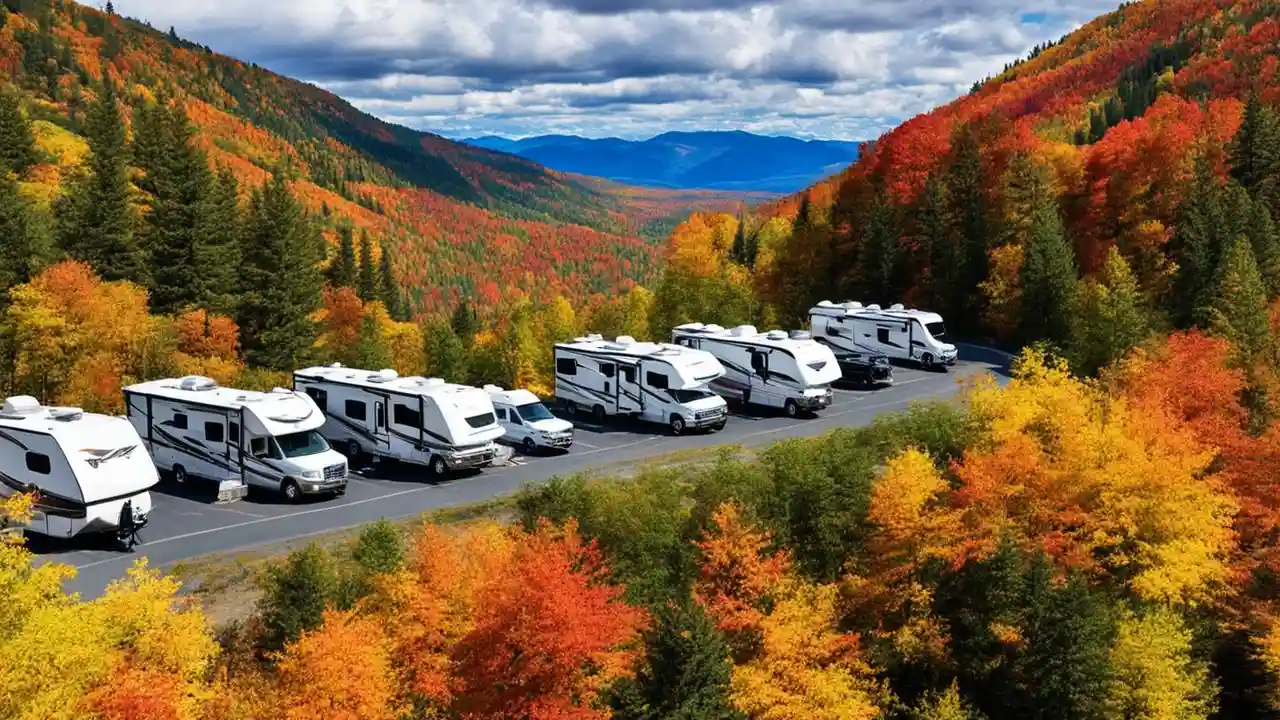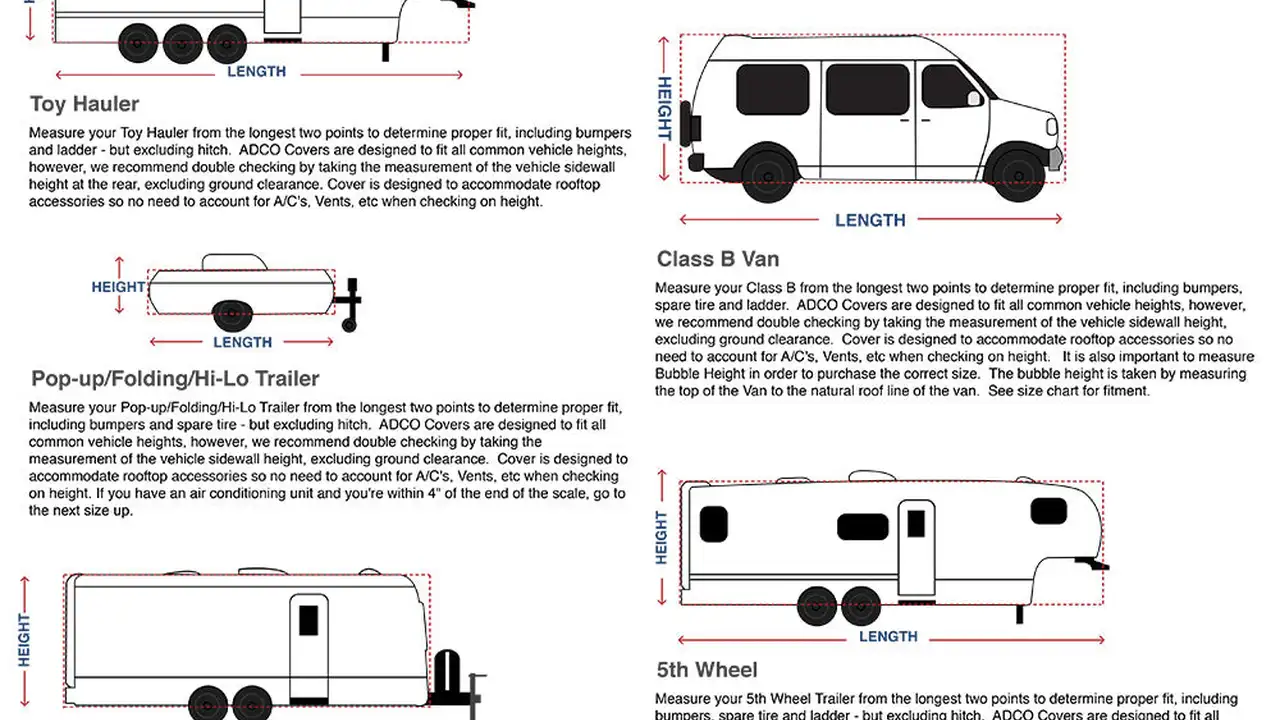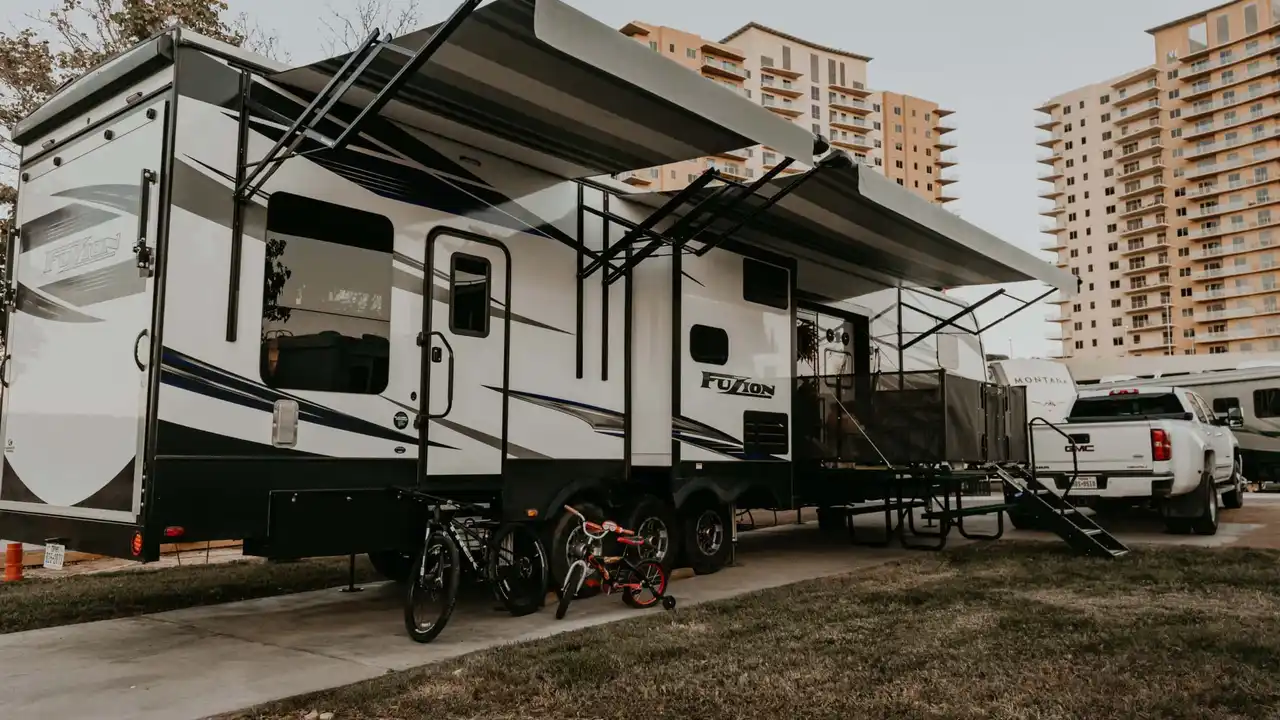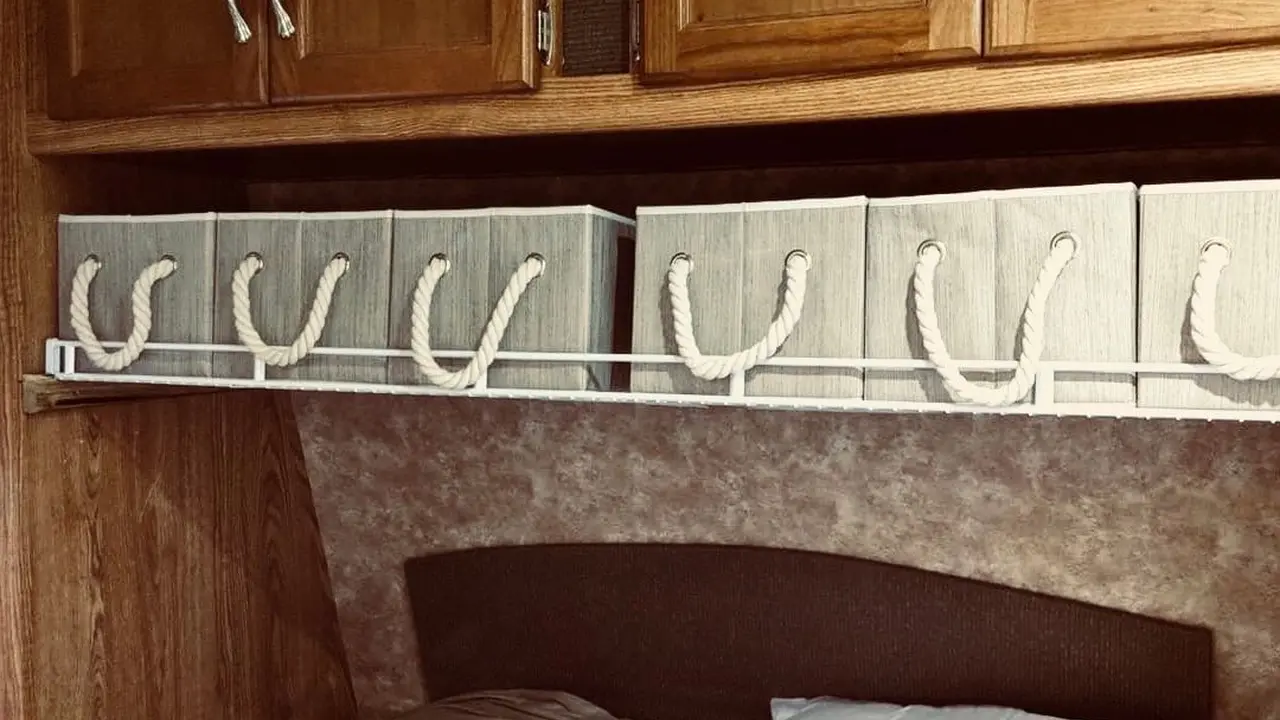The Best Time of Year to Buy an RV for Savings

Understanding RV Market Dynamics and Seasonal Buying Trends
So, you're dreaming of hitting the open road, exploring national parks, and experiencing the freedom of RV life? That’s fantastic! But before you jump into the nearest RV dealership, it's crucial to understand the RV market and how it fluctuates throughout the year. Knowing the seasonal buying trends can save you a significant amount of money and ensure you get the best possible deal on your dream RV.
The RV market, like many other industries, experiences peaks and valleys in demand. These fluctuations are driven by several factors, including weather patterns, holidays, economic conditions, and the release of new RV models. Understanding these factors will empower you to make a smart and informed purchase.
Generally speaking, the best time to buy an RV is during the off-season, which typically falls between late fall and early spring. Let's delve deeper into the reasons why this period offers the most significant savings.
Why Late Fall and Winter Offer the Best RV Deals
As the temperatures drop and the days get shorter, the demand for RVs naturally decreases. Fewer people are thinking about camping trips and outdoor adventures during the colder months. This reduced demand puts pressure on dealerships to lower their prices to move inventory.
Here's a breakdown of the key reasons why late fall and winter are prime RV buying seasons:
- Lower Demand: This is the most significant factor. Fewer buyers mean less competition and more negotiating power. Dealerships are eager to make sales and clear out older models to make room for the upcoming year's inventory.
- End-of-Year Clearance: Dealerships are often trying to meet sales quotas and clear out older models before the end of the year. This means they're more likely to offer significant discounts and incentives to entice buyers.
- New Model Releases: RV manufacturers typically release new models in the late summer or early fall. This means that dealerships are eager to sell off the previous year's models to make room for the new arrivals. You can often find substantial discounts on these slightly older models.
- Less Crowded Dealerships: During the off-season, dealerships are less crowded, allowing you to take your time, ask questions, and thoroughly inspect the RVs you're interested in. You'll also likely receive more personalized attention from the sales staff.
Spring and Summer RV Buying: A Time for Higher Prices
In contrast to the off-season, spring and summer are peak RV buying seasons. As the weather warms up and families plan their summer vacations, the demand for RVs skyrockets. This increased demand allows dealerships to command higher prices and offer fewer discounts.
Here's why spring and summer are generally not the best times to buy an RV:
- High Demand: With more buyers in the market, dealerships have less incentive to offer discounts. Competition among buyers is fierce, and you may end up paying a premium for your RV.
- Limited Inventory: Popular RV models may be in short supply during the peak season, making it difficult to find the specific RV you're looking for.
- Crowded Dealerships: Dealerships are often packed with customers during the spring and summer months, making it difficult to get personalized attention and thoroughly inspect the RVs.
Specific RV Types and Their Optimal Buying Times
While late fall and winter generally offer the best deals, the optimal buying time can vary depending on the specific type of RV you're interested in. Let's take a look at some popular RV types and their ideal buying seasons:
- Travel Trailers: These are typically most affordable in the late fall and winter, similar to the overall RV market trends.
- Fifth Wheels: Like travel trailers, fifth wheels often see the best discounts during the off-season.
- Class A Motorhomes: Due to their higher price point, Class A motorhomes can sometimes be negotiated down even during the shoulder seasons (early spring and late fall). However, the deepest discounts are still usually found in winter.
- Class B Motorhomes (Camper Vans): Camper vans are often in high demand, especially those with popular layouts. While discounts may be harder to find, the off-season still presents the best opportunity.
- Class C Motorhomes: Similar to Class A motorhomes, Class C RVs may offer slightly better deals during shoulder seasons but are generally best purchased in the late fall or winter.
Negotiating Strategies for RV Purchases Regardless of the Season
While the time of year plays a significant role in RV pricing, your negotiation skills are also crucial. Here are some tips to help you negotiate the best possible deal, regardless of the season:
- Do Your Research: Before you even step foot in a dealership, research the RV models you're interested in and their market value. Use online resources like RVUSA, RV Trader, and NADAguides to get an idea of what you should expect to pay.
- Get Pre-Approved for Financing: Securing pre-approval for an RV loan gives you more negotiating power. You'll know your budget and can avoid being pressured into accepting the dealership's financing options, which may not be the best deal.
- Shop Around: Don't settle for the first offer you receive. Visit multiple dealerships and compare prices. Let the dealerships know that you're shopping around and that you're looking for the best possible deal.
- Focus on the Out-the-Door Price: Don't just focus on the sticker price of the RV. Be sure to ask for the out-the-door price, which includes all taxes, fees, and other charges. This will give you a true picture of the total cost of the RV.
- Be Willing to Walk Away: The most powerful negotiating tool you have is the ability to walk away. If the dealership isn't willing to meet your price, be prepared to leave. They may be more willing to negotiate if they know you're serious about buying elsewhere.
- Consider a Trade-In: If you have an existing RV or vehicle, you can use it as a trade-in to lower the price of your new RV. Be sure to research the value of your trade-in before you go to the dealership.
- Look for Incentives and Rebates: RV manufacturers and dealerships often offer incentives and rebates to entice buyers. Be sure to ask about any available incentives or rebates that you may be eligible for.
RV Financing Options and Interest Rates: A Comprehensive Guide
Financing an RV is a significant financial decision, so understanding your options and securing the best possible interest rate is essential. Here's a breakdown of common RV financing options:
- Dealership Financing: Many dealerships offer financing options, often through partnerships with banks and credit unions. While convenient, dealership financing may not always offer the best interest rates.
- Bank and Credit Union Loans: Securing an RV loan directly from a bank or credit union can often result in lower interest rates and more favorable terms. Shop around and compare rates from different lenders.
- Online Lenders: Several online lenders specialize in RV financing. These lenders often offer competitive rates and a streamlined application process.
- Secured vs. Unsecured Loans: RV loans are typically secured loans, meaning the RV itself serves as collateral. Unsecured loans, such as personal loans, may be an option, but they often come with higher interest rates.
Factors that influence RV loan interest rates include:
- Credit Score: A higher credit score typically results in lower interest rates.
- Loan Term: Shorter loan terms generally have lower interest rates but higher monthly payments.
- Down Payment: A larger down payment can often result in a lower interest rate.
- Type of RV: The type of RV being financed can also affect interest rates.
- Lender: Different lenders offer different interest rates, so it's important to shop around.
RV Insurance: Protecting Your Investment on the Road
RV insurance is crucial for protecting your investment and ensuring your financial security while traveling. RV insurance policies typically cover:
- Collision: Covers damage to your RV caused by a collision with another vehicle or object.
- Comprehensive: Covers damage to your RV caused by events other than collisions, such as theft, vandalism, fire, and natural disasters.
- Liability: Covers bodily injury or property damage that you cause to others while operating your RV.
- Uninsured/Underinsured Motorist: Protects you if you're involved in an accident with an uninsured or underinsured driver.
- Medical Payments: Covers medical expenses for you and your passengers if you're injured in an accident.
Factors that influence RV insurance premiums include:
- Type of RV: Larger and more expensive RVs typically have higher insurance premiums.
- Usage: Full-time RVers typically pay higher premiums than those who only use their RV occasionally.
- Driving Record: A clean driving record can result in lower insurance premiums.
- Coverage Limits: Higher coverage limits typically result in higher premiums.
- Deductible: A higher deductible typically results in lower premiums.
Recommended RV Brands and Models for Different Budgets and Needs
Choosing the right RV can be overwhelming, given the vast array of brands and models available. Here are some recommended RV brands and models based on different budgets and needs:
Budget-Friendly Options (Under $30,000):
- Forest River Rockwood Mini Lite: A lightweight and affordable travel trailer perfect for couples or small families.
- Jayco Jay Flight SLX: A popular and reliable travel trailer with various floorplans to choose from.
- Coachmen Clipper: Another budget-friendly travel trailer option with a focus on value.
Mid-Range Options ($30,000 - $75,000):
- Grand Design Reflection: A well-built and luxurious travel trailer with high-end features.
- Winnebago Micro Minnie: A compact and versatile travel trailer with a modern design.
- Airstream Bambi: An iconic and stylish travel trailer with a reputation for quality and durability.
Luxury Options (Over $75,000):
- Newmar Dutch Star: A high-end Class A motorhome with luxurious amenities and a powerful engine.
- Entegra Cornerstone: Another top-of-the-line Class A motorhome with exceptional craftsmanship and attention to detail.
- Airstream Classic: The flagship Airstream model, offering unparalleled luxury and sophistication.
Specific Product Recommendations with Use Cases and Pricing:
* **Product:** Dometic CFX3 55IM Powered Cooler * **Use Case:** This portable cooler is perfect for keeping food and drinks cold on camping trips, road trips, or even in your RV. The integrated ice maker is a huge bonus for extended trips. * **Details:** It runs on 12V DC or 110V AC power, has a digital display for temperature control, and is extremely energy efficient. * **Pricing:** Approximately $1,200 * **Product:** WeBoost Drive Reach RV Cell Phone Booster * **Use Case:** Essential for staying connected while traveling in remote areas with weak cell signals. Improves call quality, data speeds, and overall connectivity. * **Details:** Amplifies cell signals for multiple users, works with all US carriers, and is easy to install in your RV. * **Pricing:** Approximately $500 * **Product:** Furrion Vision S 4.3" Wireless RV Backup System * **Use Case:** Enhances safety and visibility while backing up your RV. Provides a clear view of what's behind you, helping to avoid accidents. * **Details:** Wireless connectivity, wide viewing angle, and night vision capabilities. * **Pricing:** Approximately $400 * **Product:** Renogy 100 Watt 12 Volt Solar Starter Kit * **Use Case:** Allows you to generate your own electricity and reduce your reliance on shore power or generators. Ideal for boondocking and off-grid camping. * **Details:** Includes a 100-watt solar panel, charge controller, and mounting hardware. * **Pricing:** Approximately $200RV Maintenance Tips to Maximize Longevity and Value
Proper RV maintenance is essential for maximizing its lifespan and maintaining its value. Here are some key maintenance tips:
- Regularly Inspect Your RV: Inspect your RV regularly for any signs of damage or wear and tear. Pay close attention to the roof, tires, seals, and plumbing.
- Maintain Your Tires: Check your tire pressure regularly and ensure your tires are properly inflated. Rotate your tires regularly to ensure even wear.
- Seal Your Roof: Inspect your RV roof regularly and reseal any cracks or gaps to prevent leaks.
- Winterize Your RV: If you live in a cold climate, winterize your RV properly to prevent damage from freezing temperatures.
- Clean Your RV Regularly: Wash your RV regularly to remove dirt, grime, and bird droppings. Clean the interior of your RV regularly to prevent mold and mildew.
- Service Your Appliances: Have your RV appliances serviced regularly by a qualified technician.
- Store Your RV Properly: When storing your RV, cover it with a protective cover to prevent damage from the elements.
RV Camping Destinations and Trip Planning Resources
Once you've purchased your RV, it's time to start planning your adventures! Here are some popular RV camping destinations and trip planning resources:
Popular RV Camping Destinations:
- National Parks: Explore the stunning landscapes of national parks like Yellowstone, Yosemite, and Grand Canyon.
- State Parks: Discover the natural beauty of state parks across the country.
- Private Campgrounds: Enjoy amenities and activities at private campgrounds like KOA and Good Sam.
- Boondocking Locations: Experience off-grid camping in remote and scenic locations.
Trip Planning Resources:
- RV Trip Wizard: A comprehensive trip planning tool that helps you find campgrounds, plan routes, and estimate costs.
- Campendium: A user-generated database of campgrounds and RV parks with reviews and ratings.
- Allstays: A directory of campgrounds, RV parks, and other RV-related services.
- Freecampsites.net: A resource for finding free camping locations across the country.
RVing with Pets: Tips for a Safe and Enjoyable Journey
Many RVers enjoy traveling with their furry companions. Here are some tips for RVing with pets:
- Ensure Your Pet is Comfortable: Make sure your pet has a comfortable place to sleep and rest in the RV.
- Provide Plenty of Water: Always provide your pet with plenty of fresh water, especially during hot weather.
- Take Frequent Breaks: Stop frequently to allow your pet to stretch their legs and relieve themselves.
- Never Leave Your Pet Unattended: Never leave your pet unattended in the RV, especially during hot weather.
- Keep Your Pet Safe: Secure your pet while driving to prevent them from being injured in an accident.
- Research Pet-Friendly Destinations: Research pet-friendly campgrounds and attractions before you travel.
The Future of RVing: Trends and Innovations to Watch
The RV industry is constantly evolving, with new trends and innovations emerging all the time. Here are some trends and innovations to watch for in the future of RVing:
- Electric RVs: Electric RVs are becoming increasingly popular as technology improves and prices come down.
- Smart RV Technology: Smart RV technology is making RVs more convenient and comfortable to use.
- Sustainable RVing: Sustainable RVing practices are becoming more common as RVers become more environmentally conscious.
- Compact RVs: Compact RVs are becoming increasingly popular as they offer a more fuel-efficient and maneuverable option.
- Adventure RVs: Adventure RVs are designed for off-road and off-grid travel.
RV Rentals: A Great Way to Test the Waters Before Buying
If you're not sure if RVing is right for you, renting an RV is a great way to test the waters before making a purchase. RV rentals allow you to experience the RV lifestyle without the commitment of ownership.
Several RV rental companies offer a wide variety of RVs to choose from, including:
- Cruise America: A large RV rental company with locations across the country.
- RVshare: A peer-to-peer RV rental marketplace.
- Outdoorsy: Another peer-to-peer RV rental marketplace.
When renting an RV, be sure to:
- Choose the Right RV for Your Needs: Consider the size of your group, the type of camping you plan to do, and your budget.
- Read the Rental Agreement Carefully: Understand the terms and conditions of the rental agreement, including insurance coverage and mileage limits.
- Inspect the RV Before You Leave: Inspect the RV carefully for any damage before you leave the rental location.
- Return the RV Clean and in Good Condition: Return the RV clean and in good condition to avoid any extra charges.
RV Storage Solutions: Protecting Your RV When Not in Use
When you're not using your RV, it's important to store it properly to protect it from the elements and prevent damage. Here are some RV storage solutions:
- Covered Storage: Covered storage provides protection from the sun, rain, and snow.
- Indoor Storage: Indoor storage provides the best protection from the elements.
- Outdoor Storage: Outdoor storage is the most affordable option, but it offers the least protection.
When storing your RV, be sure to:
- Clean Your RV Thoroughly: Clean your RV thoroughly before storing it to prevent mold and mildew.
- Cover Your RV: Cover your RV with a protective cover to prevent damage from the elements.
- Remove Perishables: Remove all perishable items from your RV to prevent pests and odors.
- Disconnect the Battery: Disconnect the battery to prevent it from draining.
- Winterize Your RV: If you live in a cold climate, winterize your RV properly to prevent damage from freezing temperatures.
RV Clubs and Memberships: Connecting with Fellow RV Enthusiasts
Joining an RV club or membership can provide you with access to valuable resources, discounts, and a community of fellow RV enthusiasts. Here are some popular RV clubs and memberships:
- Good Sam Club: Offers discounts on campgrounds, RV insurance, and other RV-related products and services.
- Passport America: Offers discounts on campgrounds across the country.
- Escapees RV Club: A community of full-time RVers with access to campgrounds, events, and resources.
- FMCA (Family Motor Coach Association): An organization for motorhome owners with access to rallies, events, and resources.
RV Safety Tips: Ensuring a Secure and Worry-Free Adventure
RV safety is paramount for ensuring a secure and worry-free adventure. Here are some essential RV safety tips:
- Pre-Trip Inspection: Conduct a thorough pre-trip inspection of your RV to identify any potential problems.
- Proper Tire Inflation: Ensure your tires are properly inflated to prevent blowouts.
- Safe Driving Practices: Practice safe driving habits, such as maintaining a safe following distance and avoiding distractions.
- Weight Distribution: Ensure your RV is properly loaded and that the weight is evenly distributed.
- Emergency Preparedness: Be prepared for emergencies by carrying a first-aid kit, a fire extinguisher, and a roadside assistance plan.
- Carbon Monoxide Detector: Install and maintain a carbon monoxide detector in your RV.
- Smoke Detector: Install and maintain a smoke detector in your RV.
RV Technology and Gadgets: Enhancing Your Camping Experience
Technology and gadgets can significantly enhance your RV camping experience. Here are some popular RV technology and gadgets:
- GPS Navigation Systems: RV-specific GPS navigation systems help you navigate safely and avoid low bridges and weight restrictions.
- Backup Cameras: Backup cameras make it easier and safer to back up your RV.
- Solar Panels: Solar panels allow you to generate your own electricity and reduce your reliance on shore power or generators.
- Satellite Internet: Satellite internet provides internet access in remote areas where cellular service is limited.
- Smart Home Devices: Smart home devices, such as smart thermostats and smart lighting, can make your RV more comfortable and convenient.
RV Living: Embracing the Full-Time Nomad Lifestyle
For some, RVing is more than just a vacation; it's a lifestyle. Full-time RV living offers freedom, flexibility, and the opportunity to explore the world at your own pace.
Before embracing the full-time RV lifestyle, consider the following:
- Downsizing: Downsize your possessions to fit into your RV.
- Financial Planning: Create a budget and plan for your expenses.
- Healthcare: Research healthcare options for full-time travelers.
- Mail Forwarding: Set up a mail forwarding service.
- Community: Connect with other full-time RVers for support and friendship.
Ultimately, the best time to buy an RV depends on your individual circumstances and priorities. However, by understanding the seasonal buying trends and using effective negotiation strategies, you can significantly increase your chances of getting a great deal on your dream RV and embarking on unforgettable adventures.
:max_bytes(150000):strip_icc()/277019-baked-pork-chops-with-cream-of-mushroom-soup-DDMFS-beauty-4x3-BG-7505-5762b731cf30447d9cbbbbbf387beafa.jpg)






